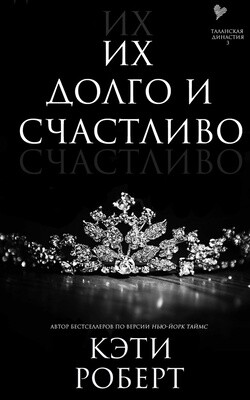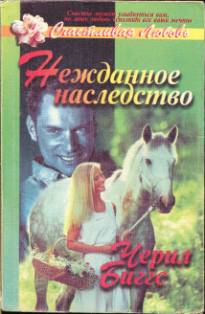Anthony Trollope - Autobiography of Anthony Trollope

Помощь проекту
Autobiography of Anthony Trollope читать книгу онлайн
child, no boy, no lad, no young man, had ever been less so. And I
had been so poor, and so little able to bear poverty. But from the
day on which I set my foot in Ireland all these evils went away
from me. Since that time who has had a happier life than mine?
Looking round upon all those I know, I cannot put my hand upon
one. But all is not over yet. And, mindful of that, remembering
how great is the agony of adversity, how crushing the despondency
of degradation, how susceptible I am myself to the misery coming
from contempt,--remembering also how quickly good things may go
and evil things come,--I am often again tempted to hope, almost to
pray, that the end may be near. Things may be going well now--
"Sin aliquem infandum casum, Fortuna, minaris;
Nunc, o nunc liceat crudelem abrumpere vitam."
There is unhappiness so great that the very fear of it is an alloy
to happiness. I had then lost my father, and sister, and brother,--have
since lost another sister and my mother;--but I have never as yet
lost a wife or a child.
When I told my friends that I was going on this mission to Ireland
they shook their heads, but said nothing to dissuade me. I think
it must have been evident to all who were my friends that my life
in London was not a success. My mother and elder brother were
at this time abroad, and were not consulted;--did not even know
my intention in time to protest against it. Indeed, I consulted
no one, except a dear old cousin, our family lawyer, from whom I
borrowed (pounds)200 to help me out of England. He lent me the money, and
looked upon me with pitying eyes--shaking his head. "After all,
you were right to go," he said to me when I paid him the money a
few years afterwards.
But nobody then thought I was right to go. To become clerk to
an Irish surveyor, in Connaught, with a salary of (pounds)100 a year, at
twenty-six years of age! I did not think it right even myself,--except
that anything was right which would take me away from the General
Post Office and from London.
My ideas of the duties I was to perform were very vague, as were
also my ideas of Ireland generally. Hitherto I had passed my time,
seated at a desk, either writing letters myself, or copying into
books those which others had written. I had never been called upon
to do anything I was unable or unfitted to do. I now understood that
in Ireland I was to be a deputy-inspector of country post offices,
and that among other things to be inspected would be the postmasters'
accounts! But as no other person asked a question as to my fitness
for this work, it seemed unnecessary for me to do so.
On the 15th of September, 1841, I landed in Dublin, without an
acquaintance in the country, and with only two or three letters of
introduction from a brother clerk in the Post Office. I had learned
to think that Ireland was a land flowing with fun and whisky, in
which irregularity was the rule of life, and where broken heads were
looked upon as honourable badges. I was to live at a place called
Banagher, on the Shannon, which I had heard of because of its having
once been conquered, though it had heretofore conquered everything,
including the devil. And from Banagher my inspecting tours were to
be made, chiefly into Connaught, but also over a strip of country
eastwards, which would enable me occasionally to run up to Dublin.
I went to a hotel which was very dirty, and after dinner I ordered
some whisky punch. There was an excitement in this, but when the
punch was gone I was very dull. It seemed so strange to be in a
country in which there was not a single individual whom I had ever
spoken to or ever seen. And it was to be my destiny to go down into
Connaught and adjust accounts,--the destiny of me who had never
learned the multiplication table, or done a sum in long division!
On the next morning I called on the Secretary of the Irish Post
Office, and learned from him that Colonel Maberly had sent a very
bad character with me. He could not have sent a very good one; but
I felt a little hurt when I was informed by this new master that he
had been informed that I was worthless, and must, in all probability,
be dismissed. "But," said the new master, "I shall judge you by your
own merits." From that time to the day on which I left the service,
I never heard a word of censure, nor had many months passed before
I found that my services were valued. Before a year was over, I
had acquired the character of a thoroughly good public servant.
The time went very pleasantly. Some adventures I had;--two of
which I told in the Tales of All Countries, under the names of The
O'Conors of Castle Conor, and Father Giles of Ballymoy. I will not
swear to every detail in these stories, but the main purport of
each is true. I could tell many others of the same nature, were
this the place for them. I found that the surveyor to whom I had
been sent kept a pack of hounds, and therefore I bought a hunter.
I do not think he liked it, but he could not well complain. He never
rode to hounds himself, but I did; and then and thus began one of
the great joys of my life. I have ever since been constant to the
sport, having learned to love it with an affection which I cannot
myself fathom or understand. Surely no man has laboured at it as I
have done, or hunted under such drawbacks as to distances, money, and
natural disadvantages. I am very heavy, very blind, have been--in
reference to hunting--a poor man, and am now an old man. I have
often had to travel all night outside a mail-coach, in order that
I might hunt the next day. Nor have I ever been in truth a good
horseman. And I have passed the greater part of my hunting life
under the discipline of the Civil Service. But it has been for
more than thirty years a duty to me to ride to hounds; and I have
performed that duty with a persistent energy. Nothing has ever
been allowed to stand in the way of hunting,--neither the writing
of books, nor the work of the Post Office, nor other pleasures.
As regarded the Post Office, it soon seemed to be understood that
I was to hunt; and when my services were re-transferred to England,
no word of difficulty ever reached me about it. I have written on
very many subjects, and on most of them with pleasure, but on no
subject with such delight as that on hunting. I have dragged it
into many novels,--into too many, no doubt,--but I have always felt
myself deprived of a legitimate joy when the nature of the tale has
not allowed me a hunting chapter. Perhaps that which gave me the
greatest delight was the description of a run on a horse accidentally
taken from another sportsman--a circumstance which occurred to my
dear friend Charles Buxton, who will be remembered as one of the
members for Surrey.
It was altogether a very jolly life that I led in Ireland. I
was always moving about, and soon found myself to be in pecuniary
circumstances which were opulent in comparison with those of my
past life. The Irish people did not murder me, nor did they even
break my head. I soon found them to be good-humoured, clever--the
working classes very much more intelligent than those of
England--economical, and hospitable. We hear much of their spendthrift
nature; but extravagance is not the nature of an Irishman. He
will count the shillings in a pound much more accurately than an
Englishman, and will with much more certainty get twelve pennyworth
from each. But they are perverse, irrational, and but little bound
by the love of truth. I lived for many years among them--not finally
leaving the country until 1859, and I had the means of studying
their character.
I had not been a fortnight in Ireland before I was sent down to a
little town in the far west of county Galway, to balance a defaulting
postmaster's accounts, find out how much he owed, and report upon
his capacity to pay. In these days such accounts are very simple.
They adjust themselves from day to day, and a Post Office surveyor
has nothing to do with them. At that time, though the sums dealt
with were small, the forms of dealing with them were very intricate.
I went to work, however, and made that defaulting postmaster teach
me the use of those forms. I then succeeded in balancing the account,
and had no difficulty whatever in reporting that he was altogether
unable to pay his debt. Of course, he was dismissed; but he had
been a very useful man to me. I never had any further difficulty
in the matter.
But my chief work was the investigating of complaints made by the
public as to postal matters. The practice of the office was and
is to send one of its servants to the spot to see the complainant
and to inquire into the facts, when the complainant is sufficiently
energetic or sufficiently big to make himself well heard. A great
expense is often incurred for a very small object; but the system
works well on the whole, as confidence is engendered, and a feeling
is produced in the country that the department has eyes of its own
and does keep them open. This employment was very pleasant, and
to me always easy, as it required at its close no more than the
writing of a report. There were no accounts in this business, no
keeping of books, no necessary manipulation of multitudinous forms.
I must tell of one such complaint and inquiry, because in its result
I think it was emblematic of many.
A gentleman in county Cavan had complained most bitterly of the
injury done to him by some arrangement of the Post Office. The
nature of his grievance has no present significance; but it was
so unendurable that he had written many letters, couched in the
strongest language. He was most irate, and indulged himself in
that scorn which is easy to an angry mind. The place was not in my
district, but I was borrowed, being young and strong, that I might
remember the edge of his personal wrath. It was mid-winter, and I
drove up to his house, a squire's country seat, in the middle of a
snowstorm, just as it was becoming dark. I was on an open jaunting
car, and was on my way from one little town to another, the cause
of his complaint having reference to some mail conveyance between
the two. I was certainly very cold, and very wet, and very
uncomfortable when I entered his house. I was admitted by a butler,
but the gentleman himself hurried into the hall. I at once began to























